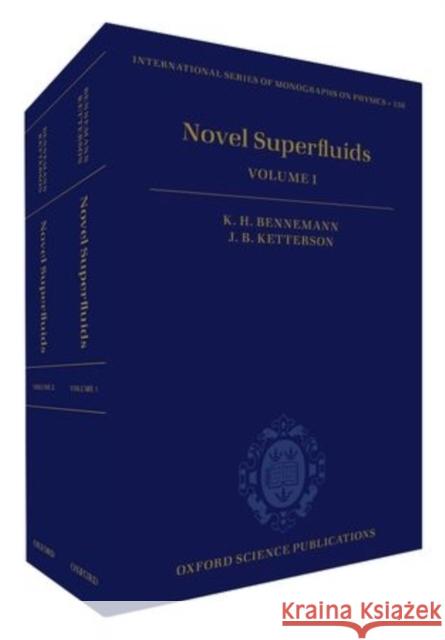Novel Superfluids: Volumes 1 and 2 » książka
Novel Superfluids: Volumes 1 and 2
ISBN-13: 9780198722854 / Angielski / Twarda / 2015 / 1240 str.
Volumes 1 and 2 of Novel Superfluids report on the latest developments in the field of Superfluidity. The phenomenon has had a tremendous impact on the fundamental sciences as well as a host of technologies. It began with the discovery of superconductivity in mercury in 1911, which was ultimately described theoretically by the theory of Bardeen Cooper and Schriever (BCS) in 1957. The analogous phenomena, superfluidity, was discovered in helium in 1938 and tentatively explained shortly thereafter as arising from a Bose-Einstein Condensation (BEC) by London. But the importance of superfluidity, and the range of systems in which it occurs, has grown enormously. In addition to metals and the helium liquids the phenomena has now been observed for photons in cavities, excitons in semiconductors, magnons in certain materials, and cold gasses trapped in high vacuum. It very likely exist for neutrons in a neutron star and, possibly, in a conjectured quark state at their center. Even the Universe itself can be regarded as being in a kind of superfluid state. All these topics are discussed by experts in the respective subfields.











